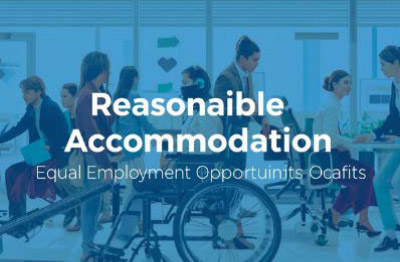How to Deal with an Employee Who Attempted Suicide
Posted on May 28, 2016
Are individuals that make failed suicide attempts unfit to return to work?
- A “direct threat” means “a significant risk of substantial harm to the health or safety of the individual or others that cannot be eliminated or reduced by reasonable accommodation.” … A “significant” risk is a high, and not just a slightly increased, risk. …
- The determination that an individual poses a “direct threat” must be based on an individualized assessment of the individual’s present ability to safely perform the functions of the job, considering a reasonable medical judgment from a qualified health care provider.
Discriminating and retaliating against employees that suffer from disabilities that lead to suicide attempts is unlawful under the Americans with Disabilities Act (“ADA”).
According to the EEOC’s enforcement handbook relative to psychiatric disabilities states:
Under the ADA, an employer may lawfully exclude an individual from employment for safety reasons only if the employer can show that employment of the individual would pose a “direct threat”.
Employers must apply the “direct threat” standard uniformly and may not use safety concerns to justify exclusion of persons with disabilities when persons without disabilities would not be excluded in similar circumstances.
An individual does not pose a “direct threat” simply by virtue of having a history of psychiatric disability or being treated for a psychiatric disability.
The EEOC’s enforcement guide also does not state that a suicide poses a “direct threat.” “An employer must base its determination on an individualized assessment of the person’s ability to safely perform job functions when s/he returns to work.
EEOC Enforcement Guide states,“Attempting suicide does not mean that an individual poses an imminent risk of harm to him/herself when s/he returns to work. In analyzing direct threat (including the likelihood and imminence of any potential harm), the employer must seek reasonable medical judgments relying on the most current medical knowledge and/or the best available factual evidence concerning the employee.”
As with any ADA situation, it is important that employers engage in an interactive process with the employee regarding what, if any accommodations they are requesting and if those accommodations have a direct impact on the essential functions of their position. Prior to terminating an employee with potential ADA protection you should consult your HR professional and/or employment law attorney.
In addition, other employees who learn about an attempted suicide may voice concern or even fear. In these cases we recommend the employer engage a professional health care consultant for employee counseling.
Lauren Sims, a Principal HR Consultant with eqHR Solutions, prepared this article.
Need assistance to create a strategy/policy to deal ADA compliance or navigating the ever-changing landscape of California Employment Law? Call today for a no obligation consultation with an HR Professional.
eqHR Solutions provides tactical and strategic human resources support for businesses in Southern California and the San Francisco / Bay area.

 A Labor Law: Your Compliance Guide
A Labor Law: Your Compliance Guide Navigating California's Reasonable Accommodation Laws
Navigating California's Reasonable Accommodation Laws Navigating California Leave Laws: A Guide for Employers
Navigating California Leave Laws: A Guide for Employers







